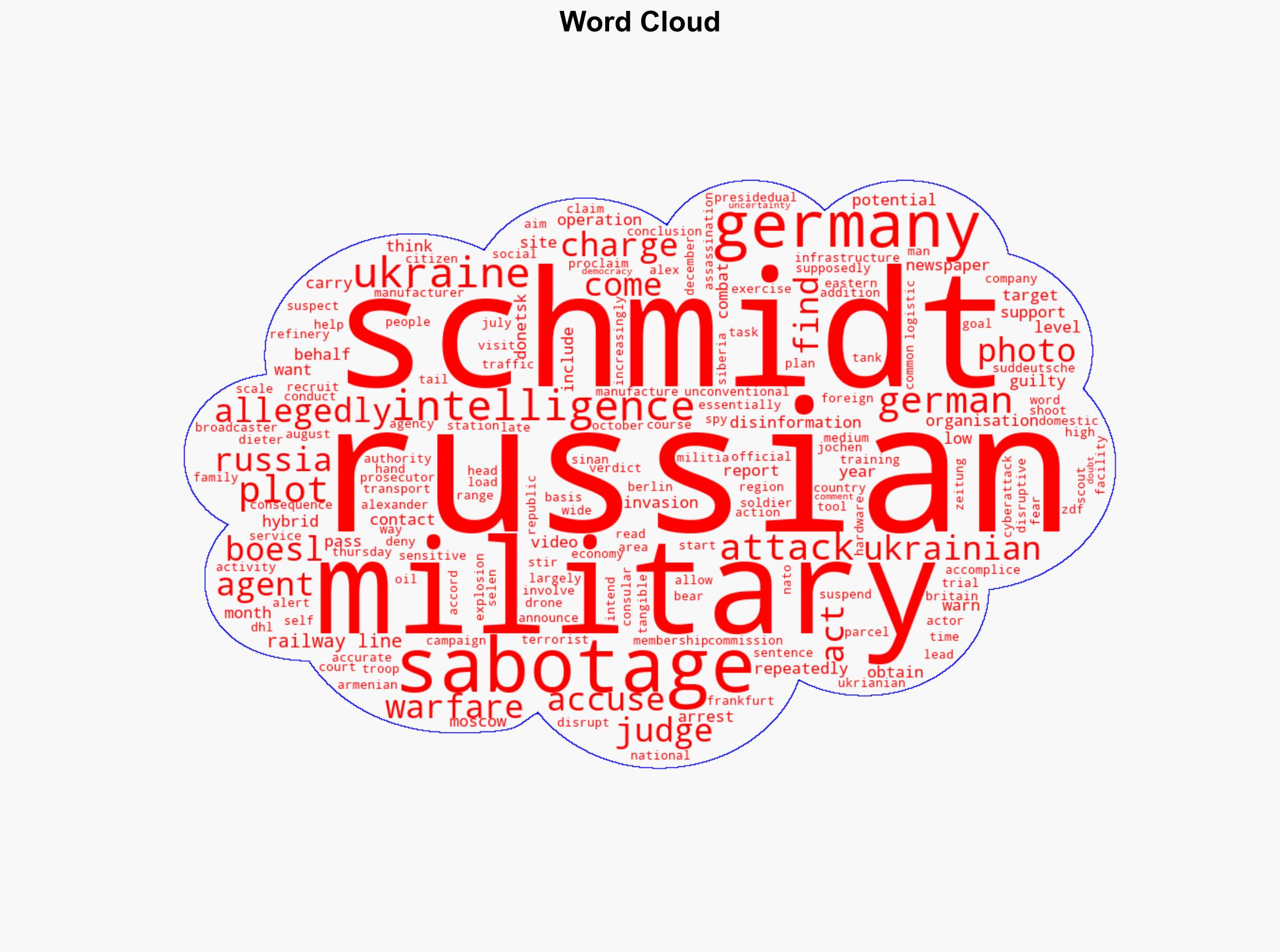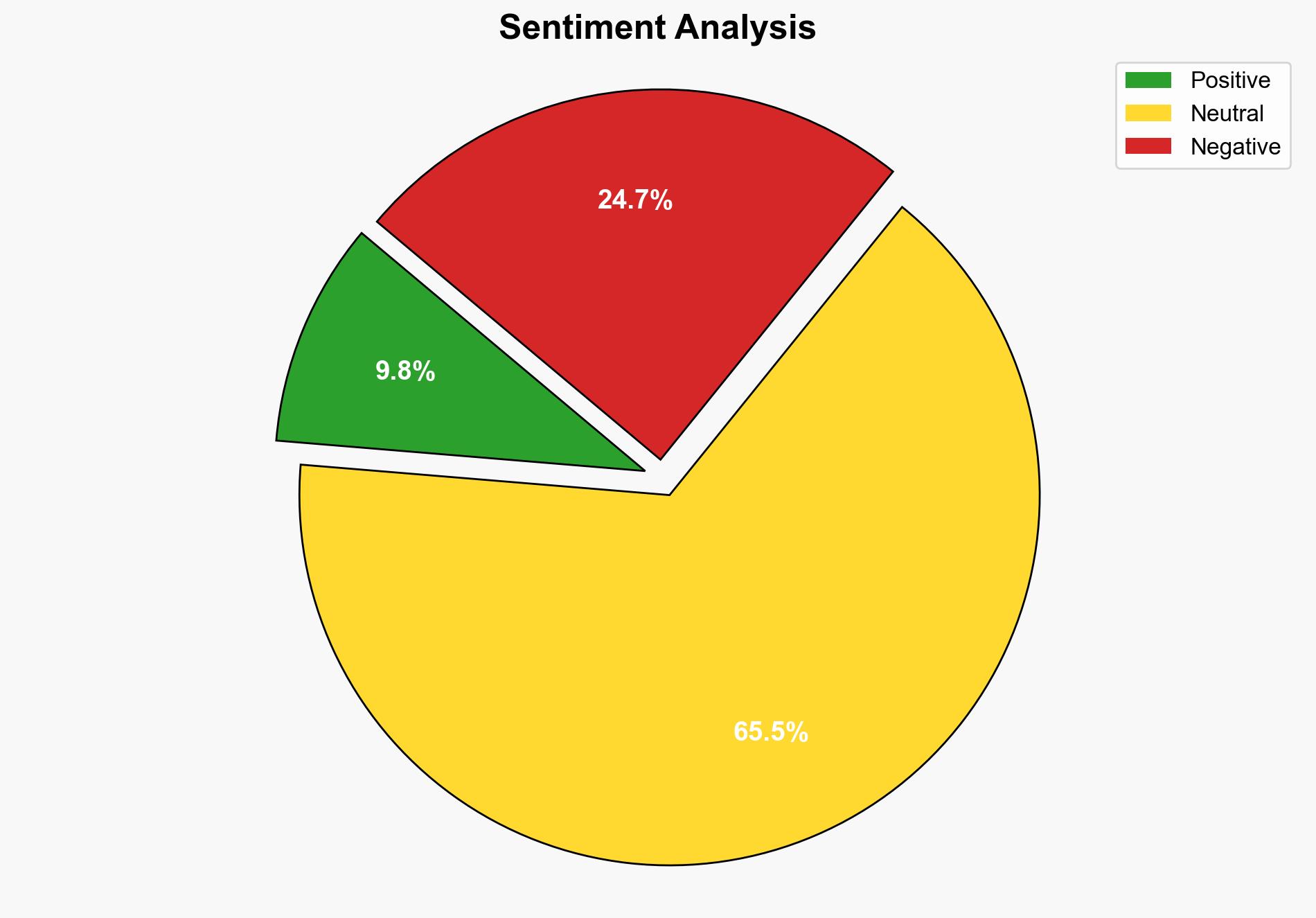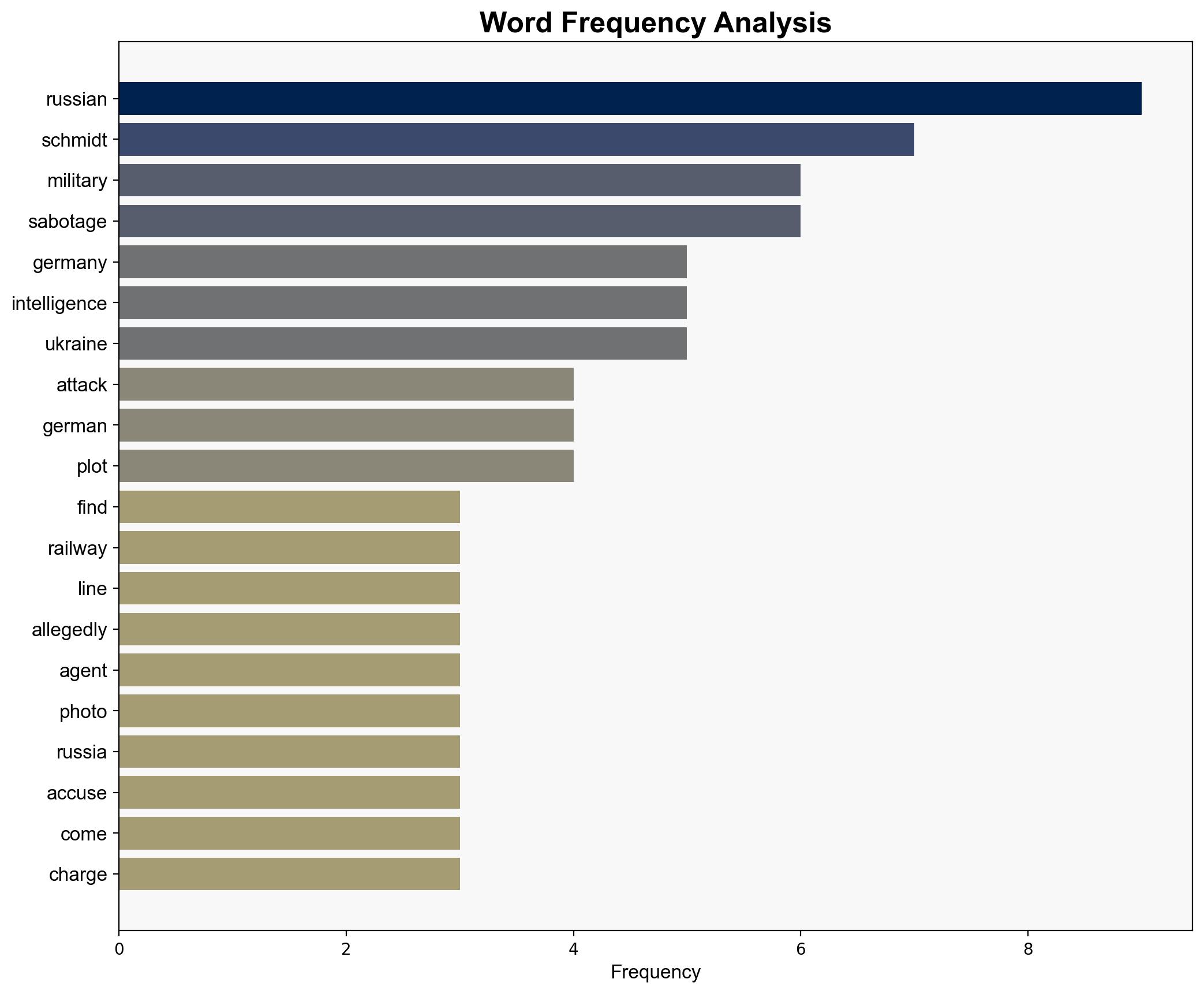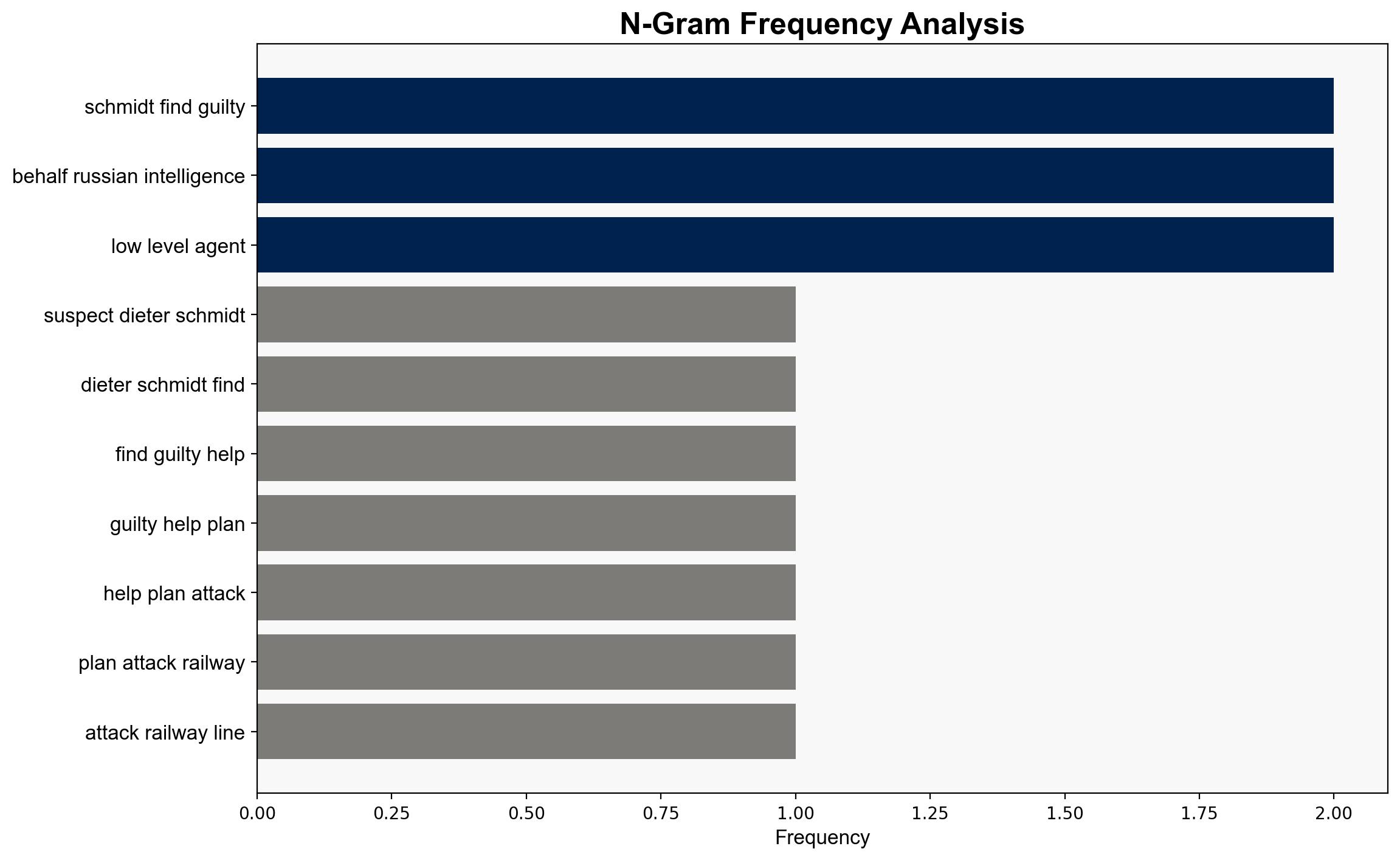German-Russian jailed for six years in Munich sabotage trial – The Local Germany
Published on: 2025-10-30
Intelligence Report: German-Russian jailed for six years in Munich sabotage trial – The Local Germany
1. BLUF (Bottom Line Up Front)
The most supported hypothesis is that Dieter Schmidt was involved in a coordinated effort with Russian intelligence to conduct sabotage operations in Germany, aimed at disrupting military and economic infrastructure. Confidence level: High. Recommended action: Enhance counterintelligence measures and increase surveillance on potential hybrid warfare activities to prevent further sabotage attempts.
2. Competing Hypotheses
1. **Hypothesis A**: Dieter Schmidt was actively involved with Russian intelligence to sabotage German infrastructure, as part of a broader strategy of hybrid warfare by Russia against Western nations.
2. **Hypothesis B**: Schmidt acted independently or with minimal guidance from Russian intelligence, motivated by personal or ideological reasons, rather than being part of a coordinated Russian strategy.
Using Analysis of Competing Hypotheses (ACH), Hypothesis A is better supported due to the evidence of Schmidt’s communication with Russian contacts, his actions aligned with known objectives of Russian hybrid warfare, and the involvement of another individual, Alexander, who received a suspended sentence.
3. Key Assumptions and Red Flags
– **Assumptions**: It is assumed that Schmidt’s actions were directed by Russian intelligence based on the pattern of behavior and communication. The assumption that Russian hybrid warfare includes sabotage as a tactic is also central.
– **Red Flags**: The potential for Schmidt’s actions being misinterpreted or exaggerated by authorities exists. The lack of direct evidence linking Schmidt to high-level Russian operatives is a blind spot.
4. Implications and Strategic Risks
The case highlights the ongoing risk of hybrid warfare tactics employed by state actors like Russia, which can destabilize national security and economic stability. The potential for escalation exists if such activities are not countered effectively, leading to increased geopolitical tensions and potential retaliatory measures.
5. Recommendations and Outlook
- Enhance intelligence-sharing mechanisms between European nations to better identify and counteract hybrid warfare activities.
- Increase cybersecurity measures and physical security around critical infrastructure.
- Scenario-based projections:
- Best: Improved international cooperation leads to effective deterrence of further sabotage attempts.
- Worst: Escalation of hybrid warfare tactics results in significant disruption to European infrastructure.
- Most Likely: Continued low-level sabotage attempts with intermittent success, requiring ongoing vigilance.
6. Key Individuals and Entities
– Dieter Schmidt
– Alexander (German-Russian dual national)
– Jochen Boesl (presiding judge)
7. Thematic Tags
national security threats, cybersecurity, counter-terrorism, regional focus




